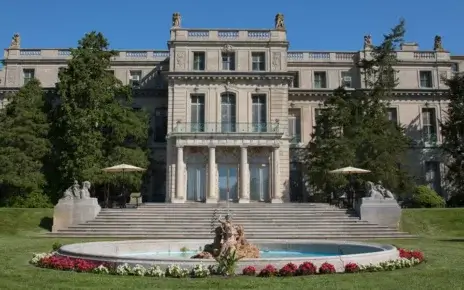Walter D. Greason, Ph.D., Associate Professor and Chair of the Department of Educational Counseling and Leadership, presented his research on the historical diversity of Union County in a virtual presentation co-sponsored by the Union Public Library and Vauxhall Historical Society on Tuesday, Feb. 2.
In addition to his work as a professor here at Monmouth, Greason is one of the most prominent historians and urbanists in the United States and a respected lecturer and social activist across the world. Over the past thirty years, he has spoken in an array of academic settings, ranging from hundreds of college campuses to numerous scholastic conferences. He has authored six books and published over a hundred additional academic articles and essays, largely centered on the racial wealth gap and varying trends of economic globalization.
In his presentation, Greason introduced his love of history and how he came to specialize more distinctly on the ever-changing demographic of New Jersey.
“There are lots of requirements to teach New Jersey history, yet most of the folks who live here don’t even know the content.”
Before delving into the specificities of Union County, Greason explained what had initially fascinated him about New Jersey.
“The farming villages originally established here have become massive arteries of traffic, and I didn’t understand how that could have happened. So, for the past 15 years, I’ve studied how the suburbs transformed New Jersey,” said Greason.
Greason went on to explain that most historians focus on Newark and the industrial epicenters located in New Jersey.
“Ironically, the garden state became prosperous because of the cities.”
“Nevertheless, instead of viewing the suburbs as communities who reside on the edges of industrial centers, it is more accurate to see them as infringing on the countryside from where they evolved,” explained Greason.
Greason’s studies are mainly based upon wealth accumulation, economics, public infrastructure, industrial enterprises, and ultimately, the overall connection to the global economy. Specifically, in this lecture, he analyzed how union county is actually a blueprint for the entire country.
“The process of immigrants coming from Italy, eastern Europe, and those of Jewish descent, transformed what it meant to be successful in New Jersey,” elaborated Greason.
From there, entrepreneurship and power in neighborhood businesses allowed people to make the American dream a reality. This would be assisted in the development of railroad channels and the Garden State Parkway.
According to Greason, this foundation for ethnic divisions sets the story of the last 20 years, and directly relates to African American affluence in this county and across the country.
“Even after the civil rights reform in the 50s and 60s, there was no African American business ownership, yet those European immigrants from the 1930s and 40s began to dominate the corporate atmosphere,” said Greason.
The ability of the African American demographic to accrue wealth is not a matter of ethnic differences but rather it is the corporate barriers that prevented them from moving upwards.
Greason explained, “Due to numerous riots in Union County in the 70s and 80s, white flight was the capital flight, meaning there were no partnerships to form or opportunities available to benefit from the state’s capital expansion.”
These are examples of economic collapse that prevent society from capitalizing on untapped potential across the nation.
“If we are going to reinvest in our backyard so as to profit all people, it comes down to education,” stated Greason.
“We have to ask the question: How do we make the next generation savvy?”
PHOTO COURTESY of Anthony DePrimo



